These courses are accredited in the province of Alberta for 2 CME credits each.
You must meet the prerequisites as listed in the Registration form to access this content.
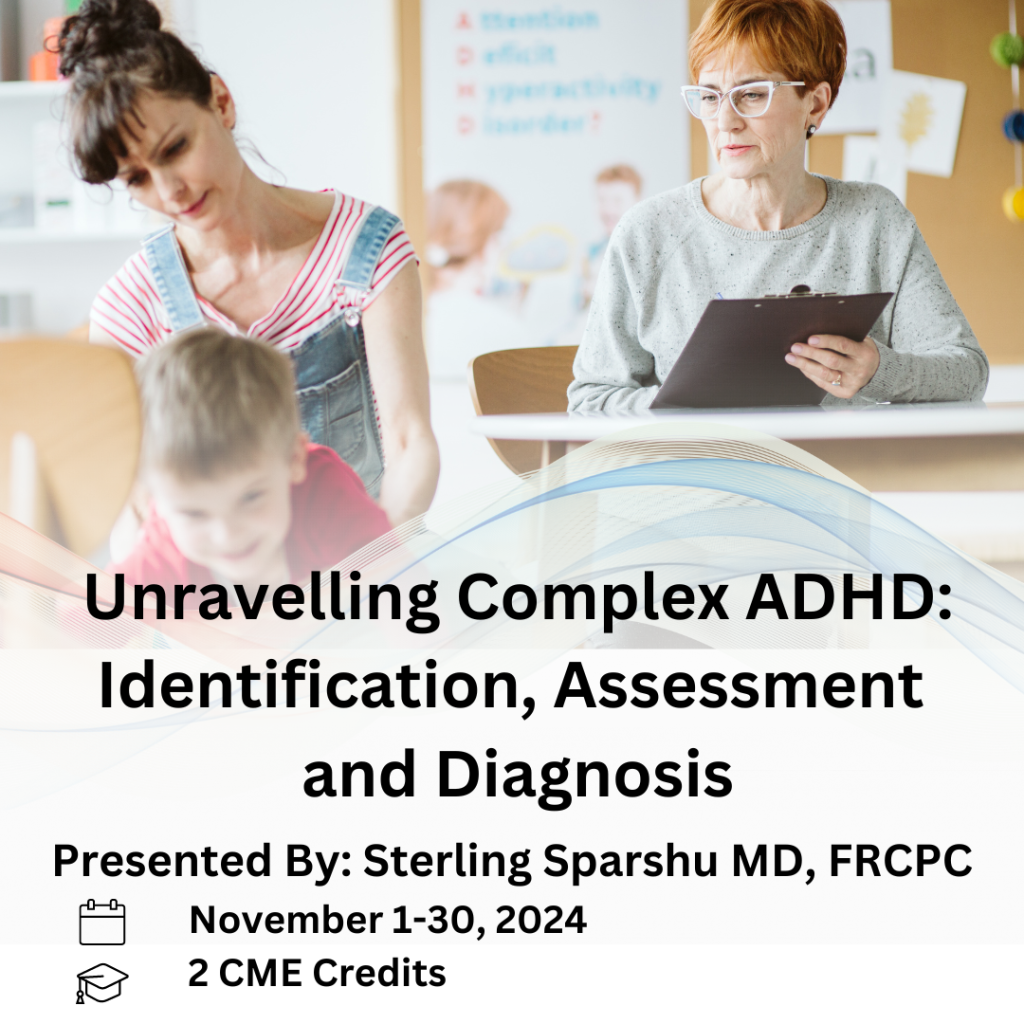
Course Objectives
By the end of this course, participants will be equipped to:
- Identify antidepressant and ADHD medications with pharmacogenetic guidance
- Describe care situations that could benefit from pharmacogenetic testing
- Explain when, where, and for whom testing is available
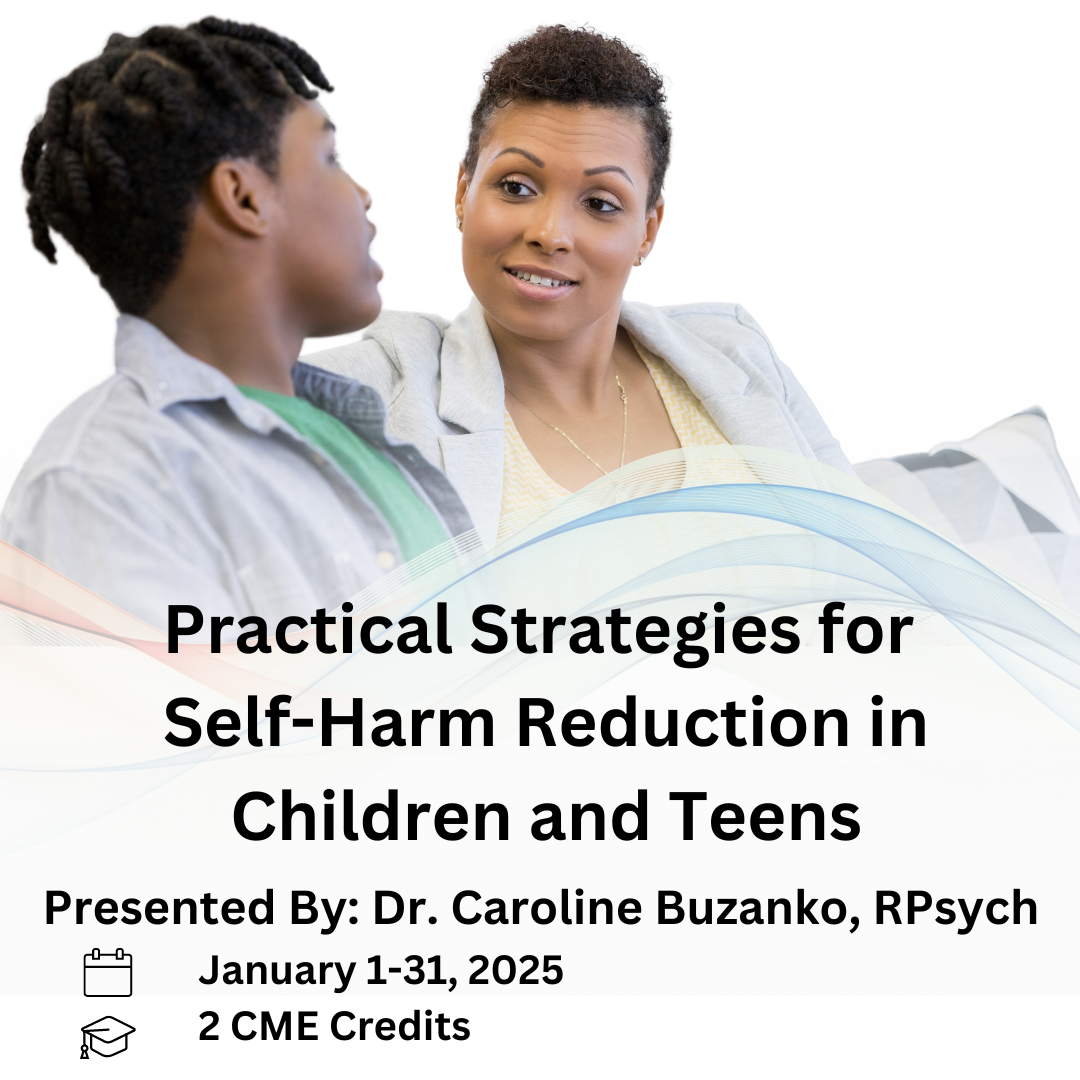
Course Objectives
By the end of this course, participants will be equipped to:
1. Define and differentiate between self-harm and suicidal behaviours.
2. Recognize the psychological, social, and biological risk factors contributing to self-harm.
3. Create the right environments to aid in self-harm reduction.
4. Implement evidence-based interventions to reduce self-harm.
5. Develop effective crisis management and safety planning strategies for at-risk individuals.
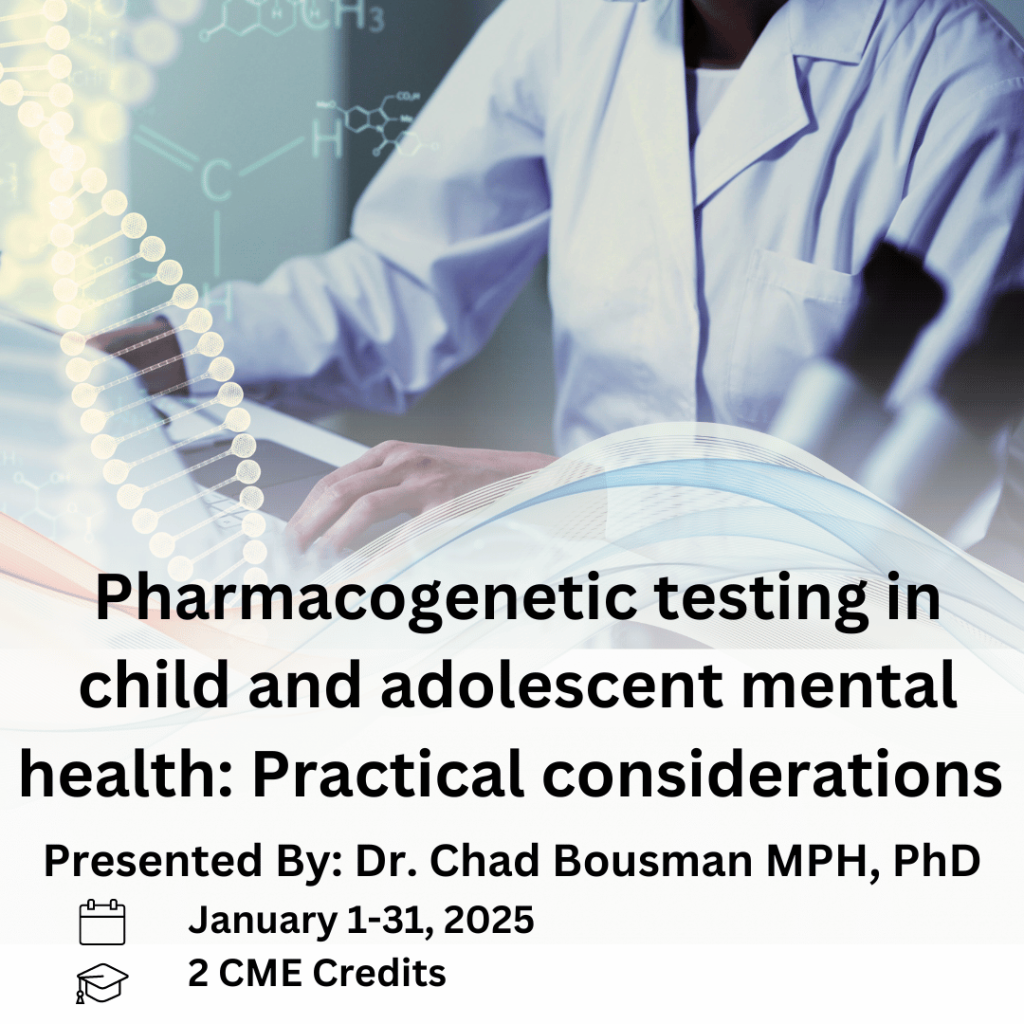
Course Objectives
By the end of this course, participants will be equipped to:
1. Identify antidepressant and ADHD medications with pharmacogenetic guidance
2. Describe care situations that could benefit from pharmacogenetic testing
3. Explain when, where, and for whom testing is available
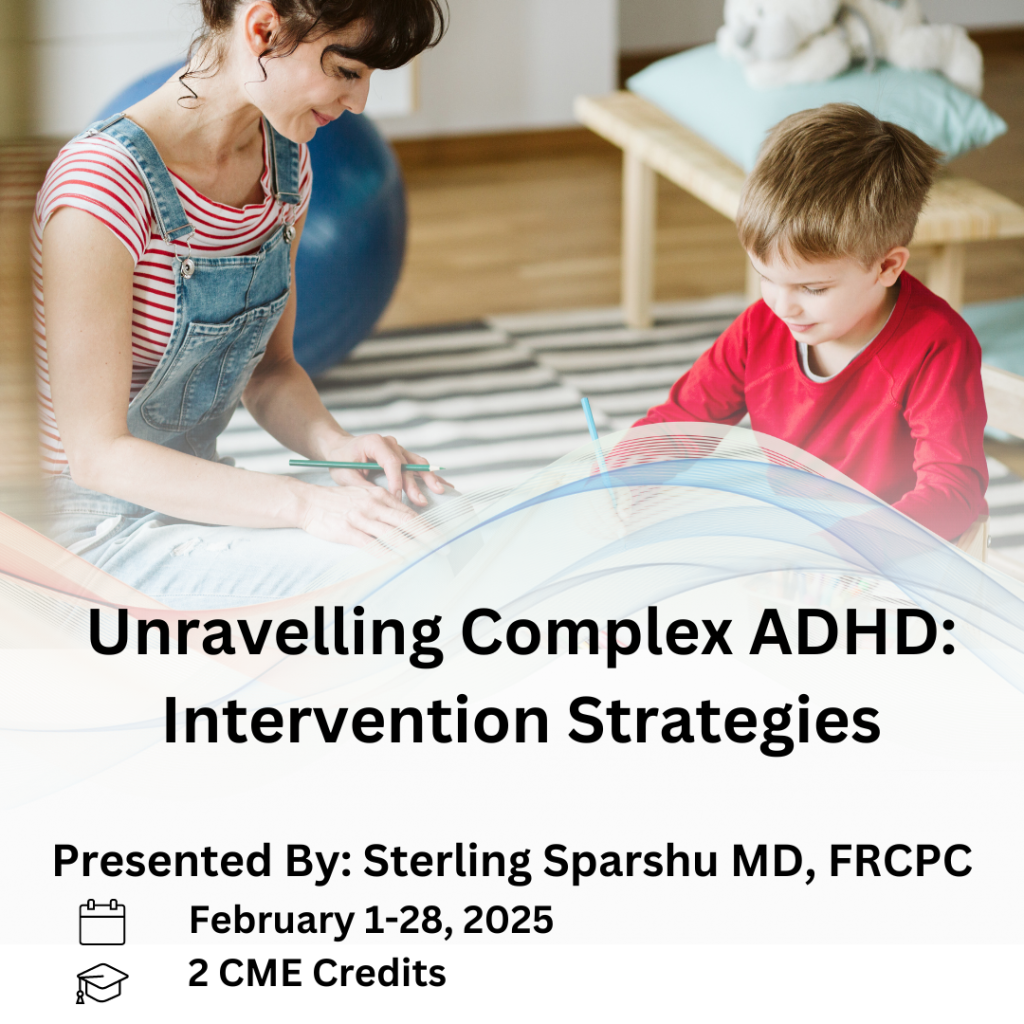
Course Objectives
By the end of this course, participants will be equipped to:
1. Explain the role of sequential treatment in Complex ADHD
2. Describe evidence-based interventions for Complex ADHD
3. Illustrate the importance of interdisciplinary care/multimodal interventions in Complex ADHD
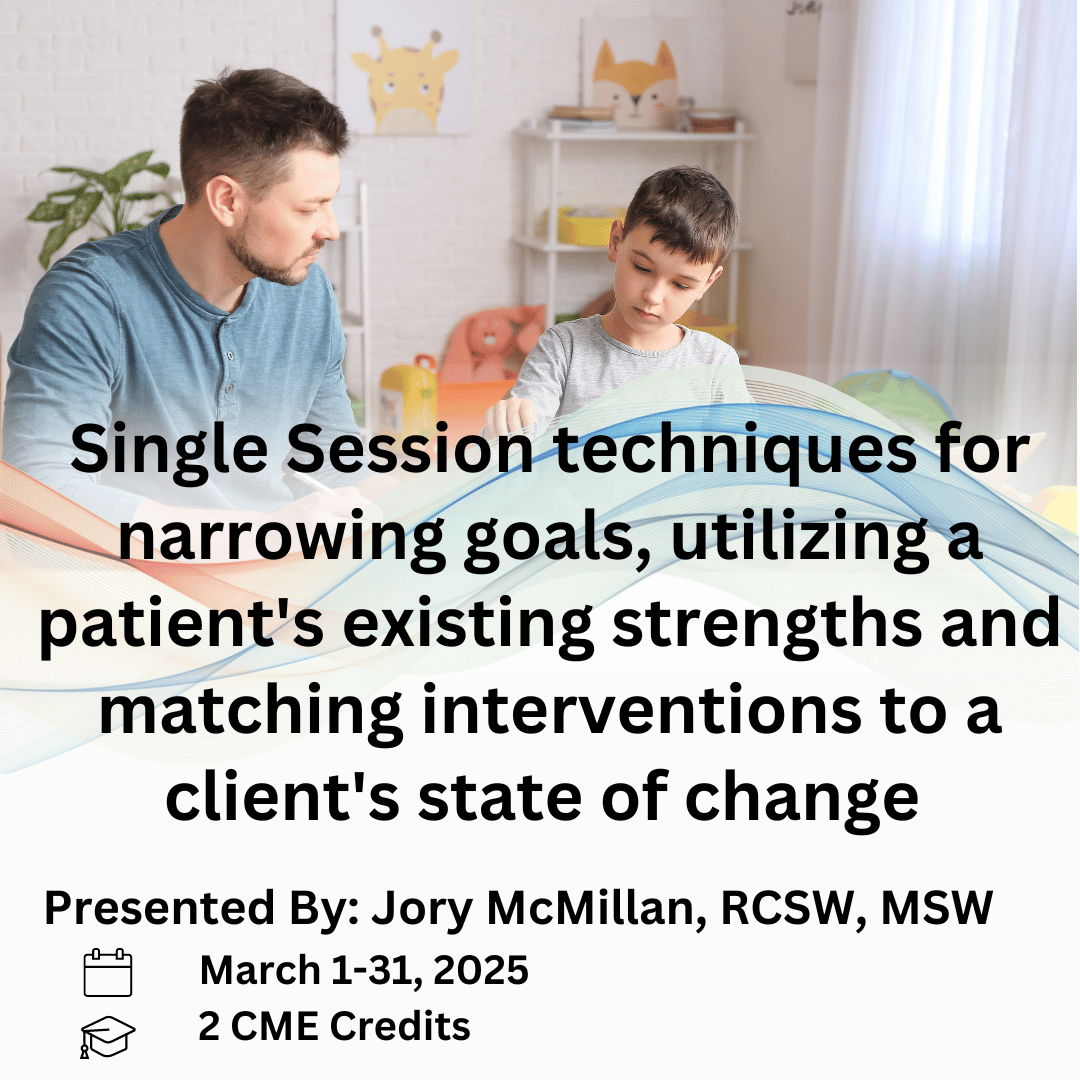
Course Objectives
By the end of this course, participants will be equipped to:
1. Asses a client’s state of change with regards to their presenting concern and explain how to match recommendations to that state
2. Describe how to utilize a client’s pre-existing strength to support their presenting concern
3. Explain how to narrow and define a client’s goals and desires for treatment of their presenting concern
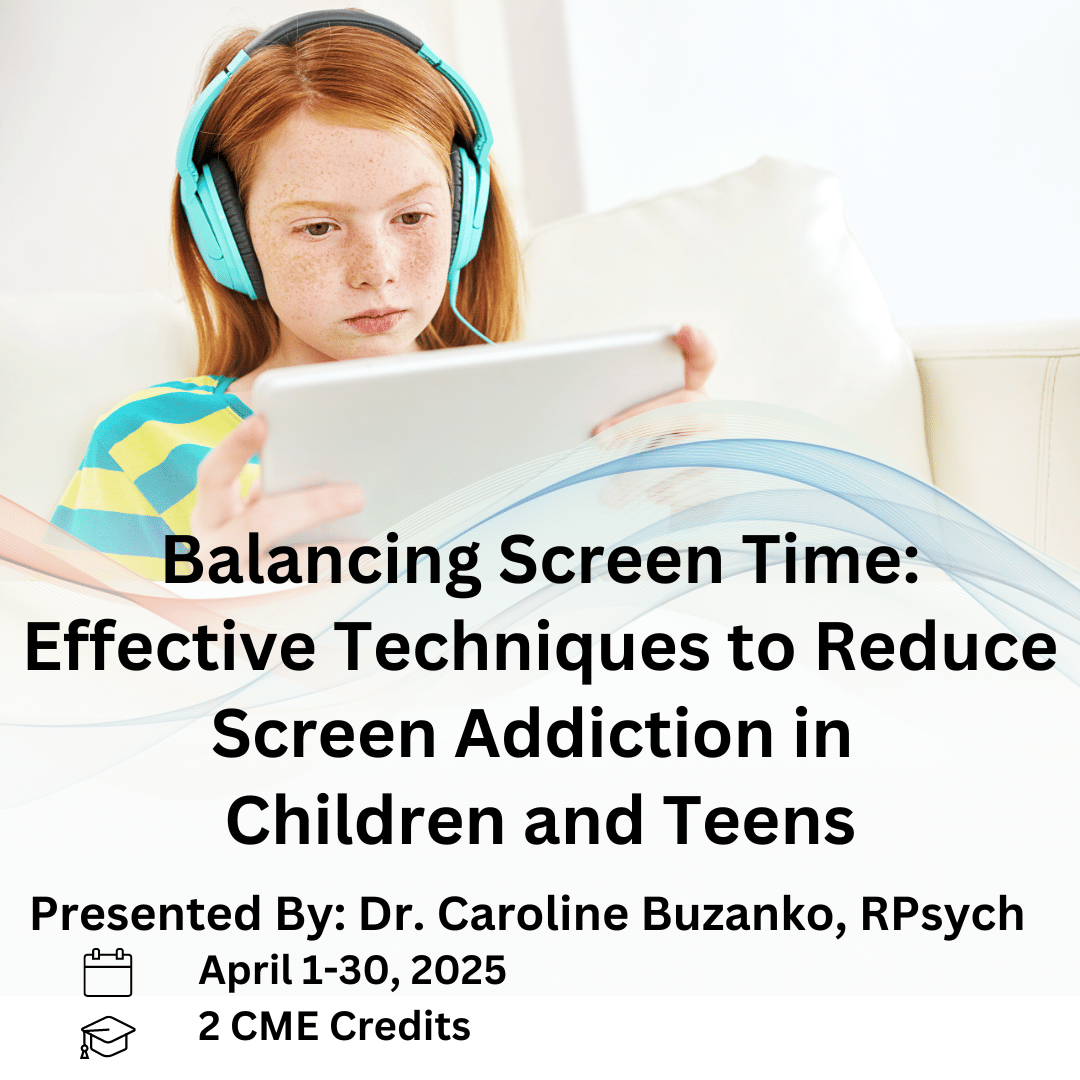
Course Objectives
By the end of this course, participants will be equipped to:
1. Define screen addiction and understand its various forms in children and teens.
2. Identify risk factors and contributing factors for screen addiction.
3. Apply family-based interventions to establish healthy screen habits.
4. Implement effective interventions to manage screen addiction.
5. Create a balanced digital environment by setting healthy boundaries and promoting alternative activities.

Course Objectives
By the end of this course, participants will be equipped to:
1. Explain why sleep is important and the challenges sleep deprivation can cause.
2. Identify what causes sleep deprivation and challenges related to sleep.
3. List strategies to assist children and adolescents in improving their sleep hygiene.

